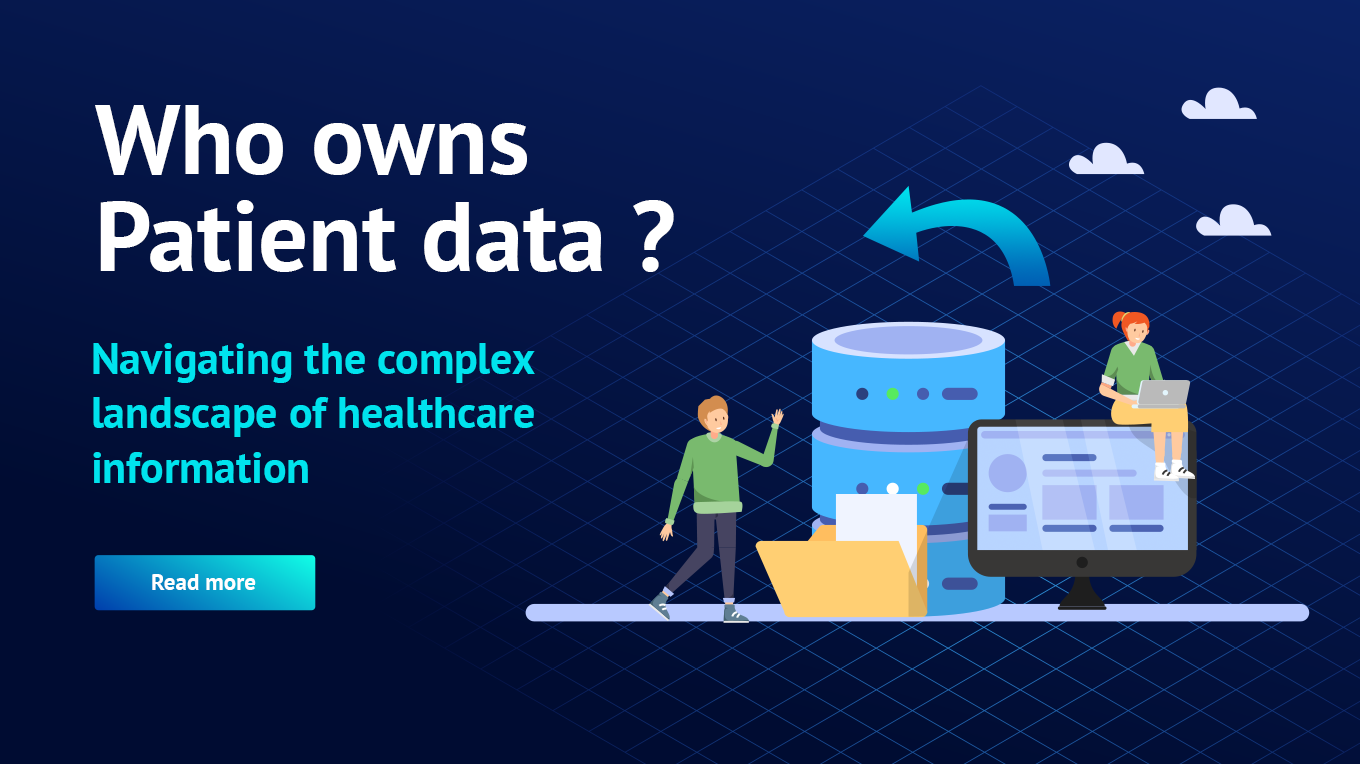In today’s digital world, data is a valuable commodity. This is especially true when it comes to healthcare data. Patient data includes medical records and test results, as well as personal health information. In fact, patient data is the core of the healthcare ecosystem.
However, the issue of patient data ownership is complex and evolving, with implications for patients, healthcare providers, and technology companies alike.
Patient data ownership is more than just a philosophical issue; it has important legal and ethical ramifications. Governments and regulatory bodies around the world are struggling with this issue as they implement more stringent data protection regulations such as GDPR in Europe. Disputes over who has access to data, who has control over data, and who has the right to use data can occur when patients, providers, and tech companies disagree.
Patient’s Perspective
From the patient’s perspective, it’s understandable to assume you own your medical data. It’s your personal information, after all! In principle, this is true. Patients have a legal and ethical right to manage and access their own health records. For example, The Health Insurance Portability and Accountability Act (HIPAA) in the United States, provides patients with the right to receive copies of their records and to request changes to them.
However, the situation is much more complex when it comes to electronic health records and data created by wearable devices or health apps. People who use these technologies often agree to complicated terms of service that allow third parties (e.g. app developers and device manufacturers) to access their data.
Healthcare Providers and Institutions
Healthcare providers create and store large amounts of patient information. They are responsible for protecting this information, adhering to data protection laws, and providing access to patients when they request it. They do not own the data in a personal sense, but they are custodians and must ensure it is secure and private.
Patient data is also used by healthcare institutions for a variety of purposes, such as medical research, improving quality of life, and monitoring public health. In these cases, the patient data is anonymized and consolidated to protect privacy. This practice can blur the boundaries of ownership, however, as the data is being used for wider societal purposes.
The Role of Technology Companies in the Healthcare Space
Technology companies have entered the healthcare space in recent years through solutions like migration, archival and conversion, EHRs, and health apps. They store and analyze large amounts of patient information. Patients may unknowingly share their health information on these platforms. Technology companies claim to provide valuable services by investing in data infrastructure. However, they may be using the anonymized and aggregated data for research or development.
To summarize, patient data ownership is a complex topic that affects patients, providers, and tech companies alike. Patients have rights to their data, but the growth of digital health has blurred the boundaries of who owns what. Regulators are working to ensure patient interests are protected and data ownership is clarified. Ultimately, finding the right balance between personal privacy, data privacy, and the advantages of data-based healthcare is key to navigating this landscape.
Patients need to be empowered, informed, and involved in the way their data is being used to ensure their rights are protected in the digital age.
Collaborate with a Trusted Partner in Patient Data
Triyam stands as a seasoned expert in the realm of EHR data migration, conversion, and archival, having successfully partnered with numerous healthcare organizations, regardless of their size. We possess an intimate understanding of the unique challenges inherent in data management and the expertise necessary to guide you through these challenges seamlessly. Reach out today to explore our comprehensive suite of data management solutions and how we can assist you in your archival journey.
Schedule a Live Demo Now!

